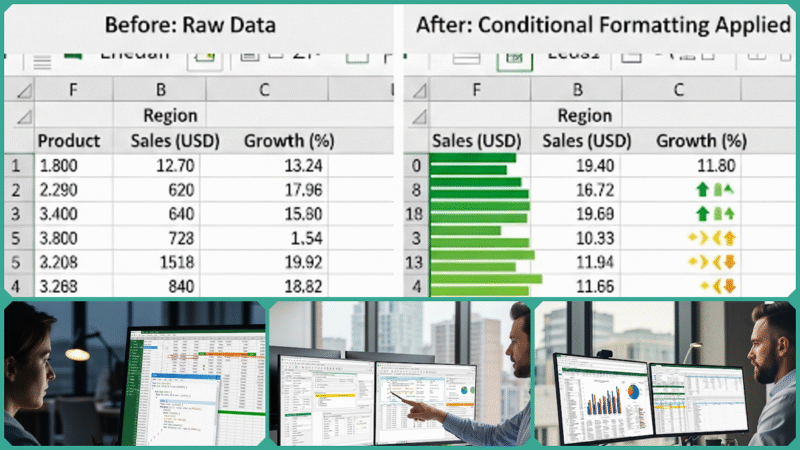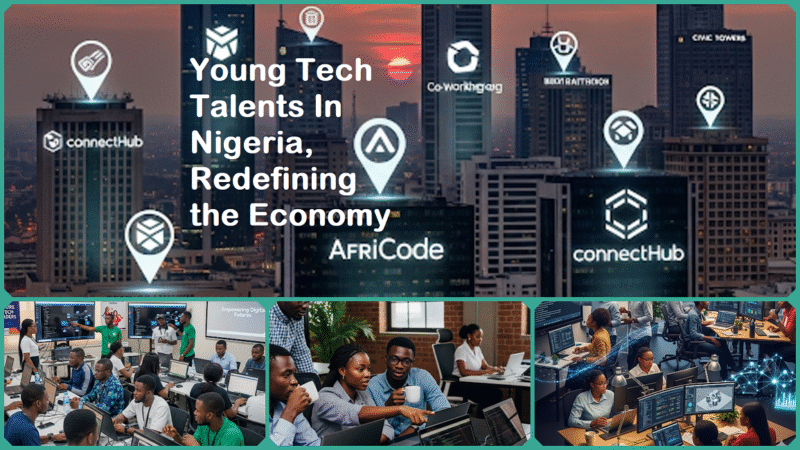Best Guide to Remote WordPress Developer Job Applications
Estimated reading time: 24 minutes
Finding and successfully securing a Remote WordPress Developer job can truly be a significant game-changer for developers who are actively seeking greater flexibility, enhanced autonomy, and a wide range of exciting career opportunities across various industries and sectors.
Whether you’re new to WordPress, an experienced developer pivoting to remote work, re-entering the job market, or transitioning from freelancing to a full-time role, this comprehensive guide covers everything to help you succeed in the competitive remote WordPress job arena.

Remote WordPress development jobs are experiencing a significant surge in demand, largely driven by the rapidly expanding digital footprint of businesses across the globe. As more companies recognize the importance of maintaining a strong online presence, the need for skilled WordPress developers has increased substantially.
Additionally, the widespread adoption of remote work practices has further accelerated this trend, making remote WordPress development positions more accessible and prevalent than ever before. Understanding the unique nuances of applying to remote roles—often requiring clear communication skills, self-motivation, technical proficiency, and strong portfolios—is critical for getting hired and thriving in these positions.
This comprehensive guide not only empowers you with practical and actionable strategies but also significantly saves you time by thoughtfully consolidating all the essential information you need into one convenient and easy-to-access place.
Understanding Remote WordPress Developer Jobs
A Remote WordPress Developer is primarily responsible for designing, coding, testing, and maintaining WordPress websites and applications while working remotely from any location. This role involves not only creating visually appealing and functional websites but also ensuring they are optimized for performance, security, and user experience. The developer collaborates with clients or team members through digital communication tools to deliver high-quality WordPress solutions efficiently and effectively.
Their primary and most important responsibilities generally include the following key tasks:
- Developing and customizing WordPress themes and plugins that are specifically tailored to meet the unique needs and detailed requirements of each client or individual project, ensuring a personalized and effective solution.
- Modifying and carefully planning the overall website architecture, which includes not only the design and layout but also the critical integration of databases and the comprehensive setup of server-side infrastructure. This process ensures smooth functionality, efficient data management, and robust backend support for the website.
- Enhancing and optimizing overall site performance by focusing on improving speed, increasing responsiveness across all devices, and adhering strictly to SEO best practices. This approach ensures full compliance with the latest Core Web Vitals standards, thereby providing users with a seamless and efficient browsing experience.
- Maintaining robust security measures, conducting thorough troubleshooting, and performing detailed debugging processes to ensure websites remain secure, stable, and fully operational at all times.
- Collaborating closely with clients, talented designers, marketing professionals, and remote teams by utilizing a variety of advanced digital communication platforms and comprehensive project management tools to ensure seamless coordination and effective teamwork throughout all stages of the project.
- Overseeing the entire process of managing CMS content migration, including the careful planning, execution, and verification stages, as well as handling regular content updates and ongoing maintenance tasks to ensure optimal system performance and content accuracy.
- Consistently staying up to date with the latest developments within the WordPress ecosystem, including important updates, evolving industry trends, and proven best practices, is essential. This also involves gaining familiarity with new and emerging tools, such as the innovative Gutenberg block editor and advanced headless WordPress techniques, to ensure optimal performance and modern website functionality.
Technically, this role requires a strong and advanced proficiency in PHP, particularly with Object-Oriented Programming principles, as well as solid experience in JavaScript using modern ES6+ features. Additionally, candidates must have a thorough understanding of HTML, CSS, and MySQL databases. A deep and comprehensive knowledge of WordPress core APIs, including hooks and the REST API, is also essential for effectively managing and extending WordPress functionality.
Furthermore, familiarity with version control systems such as Git is necessary, along with expertise in performance optimization techniques and best practices for ensuring web security. On the softer side, excellent communication skills, efficient time management, and a high level of self-motivation are critically important to thrive and succeed in remote working environments.
In Summary
Remote WordPress Developers combine comprehensive full-stack development expertise with effective remote collaboration skills to successfully create and deliver high-quality, secure, and highly performant WordPress web solutions tailored to meet diverse client needs.
Why Remote?
Remote WordPress developer positions are highly sought after because they offer significant benefits such as increased flexibility, broader job opportunities, and often an improved work-life balance. These roles allow developers to work from anywhere, eliminating the need to commute, which saves time and reduces stress.
Additionally, working remotely can provide a more comfortable and personalized work environment, which many find enhances productivity and job satisfaction. From a job opportunities perspective, remote work opens up access to global employers rather than being limited to local markets.
This wider reach can lead to better job matches and often more competitive salaries, especially if working for companies based in regions with higher pay scales like the US or Europe, while living in lower-cost areas.
However, securing a remote WordPress developer role requires more than just technical coding skills. Because communication and collaboration happen digitally, effective remote communication skills, time management, and familiarity with collaboration tools (like Slack, Zoom, Trello, GitHub) are critical.
Employers look for candidates who demonstrate self-motivation and the ability to work independently without direct supervision. Being proactive about updating skills and maintaining productivity routines also plays an important role in excelling remotely.
In summary, the primary and most compelling reasons why remote WordPress developer roles have become increasingly attractive and sought-after by professionals include:
- Greater flexibility in choosing working hours and the location where you perform your tasks
- Access to a significantly wider and more diverse pool of job opportunities available on a global scale, allowing individuals to explore and apply for positions beyond their local or regional markets.
- Achieve a significantly better work-life balance through the benefits of reduced commuting time and the ability to create a personalized workspace tailored specifically to your needs and preferences. This combination greatly enhances overall well-being and productivity.
- Significant potential for highly competitive compensation packages and attractive financial rewards
The growing necessity to develop remote-specific soft skills has become increasingly important in today’s work environment, especially focusing on areas such as effective communication and strong self-management.
These skills are essential for maintaining productivity and collaboration when working outside of traditional office settings. Enhancing abilities in clear, concise communication and disciplined self-management practices is vital for successfully navigating the unique challenges presented by remote work scenarios.
Core Skills and Qualifications for Remote WordPress Developer Roles
Employers looking to hire remote WordPress developer roles in 2025 generally seek a well-rounded combination of robust technical expertise and proven remote work capabilities. This requirement is carefully tailored to accommodate a diverse range of applicants, including both entry-level candidates who are just beginning their careers and experienced professionals with extensive backgrounds in WordPress development.
Here is a comprehensive and detailed overview of the essential core skills and qualifications that are most highly valued and sought after in the industry:
| Skill Category | Essential Skills & Tools |
|---|---|
| Programming Languages | Proficiency in PHP (with Object-Oriented Programming principles), JavaScript (ES6+), HTML5, CSS3, and pre-processors like SASS/LESS. These are fundamental for theme/plugin development and site customization. |
| WordPress Expertise | Deep understanding of the WordPress ecosystem, including the development and customization of custom themes and plugins, use of the WordPress REST API, command-line tools like WP-CLI, and experience with WooCommerce for e-commerce sites. Mastery of custom post types and taxonomies is often crucial for creating flexible content structures. |
| Database Management | Skills in MySQL for writing efficient queries and optimizing database performance within WordPress installations. |
| Version Control | Experience using Git for managing codebase versions and collaborating efficiently in distributed teams. |
| Performance & Security | Knowledge of site speed optimization (caching, minification, image optimization), adherence to security best practices (vulnerability scanning, secure coding, regular updates), and ability to troubleshoot and patch security issues effectively. |
| Remote Work Proficiency | Strong communication skills, familiarity with remote collaboration tools (Slack, Zoom, Trello, GitHub), and demonstrated ability to work independently and manage time effectively are crucial soft skills for remote roles. |
| Additional Advanced Skills | Experience with modern JavaScript frameworks such as React or Vue.js for headless WordPress implementations, familiarity with cloud platforms (AWS, Google Cloud), and knowledge of CI/CD pipelines and automated testing to support development workflows. |
For Entry-Level Candidates
- Effectively demonstrating a strong and comprehensive foundational knowledge along with a deep understanding of the various technical areas outlined above, clearly showcasing a solid and well-rounded grasp of the essential principles, theories, and key concepts involved in these subjects.
- Demonstrating a strong eagerness and genuine enthusiasm to learn by actively engaging in personal or practice projects that allow for hands-on experience and skill development. This proactive approach showcases a commitment to continuous improvement and a passion for gaining new knowledge outside of formal settings.
- Building a comprehensive portfolio that consists of either real-world or carefully crafted sample WordPress projects is a crucial step in showcasing your skills and expertise. Developing a diverse collection of projects allows you to demonstrate your ability to handle various types of WordPress websites, from simple blogs to complex e-commerce sites. By including both actual client work and well-designed sample projects, you can effectively highlight your creativity, technical knowledge, and problem-solving capabilities to potential employers or clients. This approach not only strengthens your portfolio but also provides tangible evidence of your proficiency in WordPress development.
- Emphasizing important soft skills such as effective communication and strong time management is crucial. These abilities not only enhance personal interactions but also improve overall productivity and efficiency in both professional and everyday settings. Highlighting these skills can demonstrate your capacity to collaborate well with others and manage tasks efficiently, making you a valuable asset in any environment.
For Experienced Developers
- Emphasizing highly advanced technical skills, including the development of complex custom plugins tailored to specific client needs, expertise in implementing headless WordPress architectures utilizing modern JavaScript frameworks like React and Vue, and actively contributing to various open-source projects to support and improve the developer community.
- Extensive experience in optimizing large-scale WordPress websites to enhance both their performance and security measures. Skilled in implementing advanced techniques to improve site speed, reduce load times, and ensure robust protection against various security threats and vulnerabilities. Proven ability to manage and maintain high-traffic WordPress platforms while maintaining optimal functionality and safeguarding sensitive data effectively.
- In-depth knowledge and experience with enterprise-level WordPress hosting environments, including the management and optimization of multisite WordPress setups, ensuring scalable and efficient performance across multiple interconnected websites.
- Demonstrating effective leadership or providing strong mentorship in remote or distributed teams requires a unique set of skills and approaches tailored to the challenges of virtual collaboration. It involves fostering clear communication, building trust across distances, and actively supporting team members despite the lack of physical presence. Leaders and mentors must be proactive in creating a sense of connection and belonging, guiding their teams with empathy, patience, and consistent encouragement. Additionally, they need to leverage digital tools strategically to facilitate collaboration, monitor progress, and address any issues promptly, ensuring that every team member feels valued and motivated regardless of their location.
In Summary
A remote WordPress developer role in 2025 demands a well-rounded skill set that combines deep technical WordPress know-how and programming expertise with strong remote collaboration abilities. Staying updated on modern trends like headless CMS architectures and cloud integrations further sets candidates apart.
This comprehensive skill profile is carefully designed to align closely with the most current job market standards and incorporates recommendations from a variety of reputable sources that specialize in WordPress developer job descriptions and hiring practices. It reflects the evolving demands and expectations within the industry to ensure relevance and effectiveness.
Latest Trends in Remote WordPress Development
The most recent trends in remote WordPress development for the year 2025 highlight several important advancements that are significantly influencing how developers create, manage, and enhance WordPress websites from remote locations.
These trends focus on innovative technologies and methodologies that streamline the entire development process, making it more efficient and effective for remote teams working across different time zones and environments:
- Headless WordPress Architecture: This is a leading trend where WordPress functions solely as a content management backend, while the frontend is developed using modern JavaScript frameworks like React, Vue, Next.js, or Svelte. This decoupled setup offers improved performance, flexibility, and the ability to deliver content seamlessly across multiple platforms (websites, mobile apps, IoT devices). Tools like WPGraphQL enhance data fetching efficiency beyond the standard REST API, contributing to faster load times and richer user experiences. Hybrid headless CMS approaches are also gaining traction, blending traditional WordPress features with headless flexibility for scalability and ease of use.
- Performance Optimization: Speed and responsiveness continue to be of utmost importance in web development, with a strong focus on implementing effective caching strategies to reduce load times and improve user experience. Additionally, image optimization plays a crucial role in enhancing page performance by minimizing file sizes without compromising quality. It is also essential to use plugins sparingly and choose only the most efficient ones to avoid unnecessary bloat and slowdowns. Adhering to Core Web Vitals remains a key priority to ensure websites meet modern performance standards. Furthermore, hosting providers are increasingly offering robust support for headless deployments, integrating Continuous Integration and Continuous Deployment (CI/CD) workflows, which significantly streamline both development processes and deployment cycles, resulting in faster and more reliable updates.
- Security Best Practices: An enhanced and comprehensive focus on security includes consistently performing regular software updates, conducting thorough vulnerability scanning, using advanced AI-powered security tools, and rigorously adopting best coding practices to safeguard websites from continuously evolving and sophisticated threats. These AI tools play a crucial role by assisting in the proactive monitoring and effective mitigation of potential risks, ensuring a robust defense against emerging cyber attacks and vulnerabilities.
- WooCommerce Expansion: As the e-commerce industry continues to grow at an unprecedented pace, the demand for WooCommerce-driven WordPress projects is increasing significantly in tandem. Innovations in this space include advanced headless e-commerce setups that separate the front end from the back end for enhanced performance, AI-driven sales predictions that help businesses anticipate market trends, sophisticated inventory management systems that streamline stock control, and highly improved shopping experiences tailored to customer preferences. These developments make WooCommerce an essential and highly valuable skill for remote developers looking to stay competitive and meet the evolving needs of online retailers.
- Remote Collaboration Tools: Mastery and proficient use of a wide range of digital collaboration platforms such as Slack, Zoom, Trello, GitHub, and automated testing/CI pipelines is essential in today’s work environment. These powerful tools play a critical role in supporting seamless team communication, efficient code management, detailed project tracking, and rigorous quality assurance processes, especially within distributed and remote work settings where team members are located across different geographical locations. Their effective utilization ensures that collaboration remains smooth and productive despite physical distances[unremot.com source].
- AI Integration: Artificial intelligence is becoming increasingly integrated into WordPress workflows, significantly accelerating a wide range of development tasks, enhancing content creation processes, improving SEO optimization strategies, and automating customer support functions. The adoption of AI-powered plugins and advanced features is rapidly becoming a standard practice, profoundly influencing both backend development activities and overall user engagement experiences. This trend is reshaping how developers and content creators work within the WordPress ecosystem, making processes more efficient and interactive.
- Web Accessibility and No-Code Editing: Increasing focus on web accessibility standards guarantees better compliance with legal requirements and enhances usability for a wide range of users with diverse needs and abilities, which in turn also contributes positively to search engine optimization (SEO) efforts. At the same time, the continued development and refinement of the Block Editor (Gutenberg) along with the rise of no-code tools have made it significantly easier for users to customize websites and deploy them much faster without needing extensive coding knowledge, making these technologies highly attractive and beneficial to both professional developers and content creators alike.
- Sustainability: Emerging eco-friendly practices in WordPress development, including the adoption of energy-efficient themes and the increasing availability of carbon-neutral hosting options, are becoming significantly more important. These trends reflect a broader and growing environmental consciousness among developers and users alike, highlighting a collective effort to reduce the overall ecological footprint of web technologies.
Remaining consistently up to date with these evolving trends not only substantially strengthens a remote WordPress developer’s overall technical proficiency but also greatly enhances their attractiveness and value to potential employers.
These employers are actively looking for developers who can deliver modern, efficient, and highly secure WordPress solutions that effectively address the demands and challenges of today’s rapidly changing digital landscape. Staying current ensures developers remain competitive and relevant in the industry.
Step-By-Step Guide to Applying for Remote WordPress Developer Jobs
Here is a comprehensive and detailed step-by-step guide to successfully applying for remote WordPress developer jobs, complete with practical and actionable advice on how to build a strong and impressive portfolio, optimize your resume and cover letter effectively, leverage various specialized job boards, prepare thoroughly for interviews, and strategically negotiate your salary—this guide is enriched with clear examples and tips to ensure better understanding and clarity throughout the process:
Build and Showcase a Strong Portfolio
- Create 3–5 diverse WordPress projects demonstrating core skills like custom theme and plugin development, API integrations, and problem-solving.
- Include live website links, GitHub repositories, and detailed case studies explaining the challenges faced, your solutions, and your specific contributions.
- For freelancers transitioning to full-time roles, emphasize client projects with measurable results such as improved site speed, increased conversions, or enhanced security.
- Use portfolio examples from well-crafted developer sites to inspire your presentation. Good portfolios often use:
- Clear navigation
- Concise project descriptions
- Visuals/screenshots of work
- Notes on technical stack and challenges solved
- Consider including a blog or insights section to demonstrate ongoing learning and expertise.
Examples of strong WordPress and web developer portfolios that you can draw inspiration from include those created by talented developers such as Jack Jeznach, who is an experienced WordPress developer known for incorporating engaging animations and providing clear, detailed project descriptions that effectively showcase his skills.
Another excellent example is Cory Hughart, who enhances his portfolio by including developer notes that highlight his problem-solving abilities and thought processes throughout various projects. Additionally, Rosie Leung offers a well-rounded portfolio featuring downloadable resumes and direct live project links, making it easy for potential clients or employers to review her work and credentials comprehensively.
Optimize Your Resume and Cover Letter
- Tailor your resume to highlight:
- WordPress-specific skills (custom plugin development, theme creation)
- Experience with remote or freelance work
- Technical proficiencies (PHP OOP, JavaScript ES6+, REST API, WooCommerce)
- Soft skills like remote communication and time management
- Use clear keywords such as “Remote WordPress Developer,” “performance optimization,” and “custom plugin development” to align with applicant tracking systems.
- Mention certifications or relevant courses (WordPress development, PHP, JavaScript, or remote productivity tools).
- Your cover letter should be:
- Concise, ideally one page
- Express genuine interest in the company’s goals and culture
- Summarize your value proposition specific to their needs
- Include a call-to-action for an interview or conversation
Leverage Multiple Job Boards and Networks
- Explore remote job boards specializing in WordPress, such as:
- WP Hired
- RemoteOK.io
- FlexJobs
- Remotive.io
- AngelList
- X-Team
- Join and participate actively in WordPress forums and communities like the WordPress.org support forums, Slack channels, and groups on LinkedIn or Facebook.
- Attend virtual WordCamps and online developer meetups to network and get referrals.
- Contribute to open-source WordPress projects on GitHub to boost visibility and credibility.
Prepare for Technical and Soft Skills Interviews
- Expect coding tests covering PHP, JavaScript, WordPress hooks, REST APIs, and debugging scenarios that reflect real-world problems.
- Practice clearly explaining your portfolio projects, focusing on your problem-solving methods and technical decisions.
- Be ready to discuss your remote work experiences, sharing how you manage communication, deadlines, and collaboration without direct supervision.
- Prepare to answer behavioral questions about teamwork, conflict resolution, and time management in a remote environment.
Negotiate Salary and Benefits for Remote Work
- Research market rates based on your experience, skill set, and geographic location using tools like Glassdoor, Payscale, and industry salary surveys.
- Factor in remote work perks such as:
- Flexible working hours
- Equipment or home office stipends
- Professional development allowances
- Paid time off policies suited to remote flexibility
- Communicate your expectations clearly but remain open to negotiation to reach a mutually beneficial compensation package.
This well-organized and structured approach will significantly help you present yourself as a highly capable, skilled, and ready candidate for remote WordPress developer positions. By following these steps carefully, you will increase your chances of not only landing the job but also thriving and succeeding in a remote work environment where self-motivation and technical expertise are essential.
Transitioning from Freelance to Full-Time Remote Roles
Transitioning from freelance work to a full-time remote WordPress developer position requires a thoughtful and strategic repositioning of your skills, accumulated experience, and overall professional narrative in a way that aligns closely with the expectations and demands of salaried employers. This process involves not only showcasing your technical expertise but also demonstrating your ability to work effectively within a structured team environment.
Below are several key points to emphasize and practical, actionable tips designed to help you make this important career shift smoothly and successfully:
Highlight Long-Term Client Relationships and Consistent Delivery
Showcase your ability to maintain enduring client partnerships, which reflects reliability and trustworthiness. Demonstrate how you consistently met or exceeded expectations through on-time project delivery and quality work, as these traits appeal strongly to employers looking for dependable team members.
- Show Experience Managing Project Scopes, Deadlines, and Cross-Functional Collaboration: Employers highly value freelancers who have demonstrated the ability to manage entire project lifecycles successfully, from the initial definition of project scope all the way through to delivering the final product within established deadlines. Be sure to emphasize your extensive experience coordinating and communicating with diverse teams, including designers, marketers, and other key stakeholders, especially in remote settings. Highlighting your proven capability to collaborate efficiently and effectively within a distributed team environment will showcase your adaptability and strong project management skills.
- Demonstrate Your Ability to Shift from Project-Centric to Product/Team-Oriented Mindset: Transitioning from freelancing to a salaried position often requires a significant change in mindset, moving away from solely completing individual projects to actively contributing to the continuous development of products and the overall success of the team. Be sure to emphasize any roles or experiences where you participated in iterative improvements, regularly attended team meetings, collaborated closely with colleagues, or adjusted your work to align with longer-term strategic objectives and evolving business goals. This shift highlights your ability to think beyond isolated tasks and focus on sustained value creation within a dynamic team environment.
- Translate Your Freelancing Achievements into Clear, Measurable Impacts and Valuable Soft Skills on Your Resume and LinkedIn Profile: Whenever possible, quantify your freelance accomplishments to highlight the concrete value you brought to projects—for example, improving website performance by X%, increasing client revenue by Y%, or reducing bugs by Z%. These specific metrics help demonstrate real, tangible results that potential employers can easily understand. Additionally, be sure to emphasize important soft skills such as effective communication, strong self-management, seamless remote collaboration, and creative problem-solving, all of which are essential qualities for thriving in remote work environments and contributing to successful team outcomes.
Additional Tips:
- Include a dedicated and highlighted section on your resume or LinkedIn profile that thoroughly summarizes your freelancing experience. In this section, place special emphasis on the key points mentioned above, detailing your skills, accomplishments, and the value you brought to each project. This will help potential employers or clients quickly understand the breadth and depth of your freelance work and the expertise you have developed over time.
- Incorporate detailed recommendations and heartfelt testimonials from satisfied clients to effectively validate your strong work ethic and the exceptional results you consistently deliver. These authentic endorsements not only highlight your professionalism but also build trust and credibility with potential clients, showcasing the positive impact of your dedication and expertise in real-world scenarios.
- Customize your cover letter to specifically demonstrate your preparedness for collaborative, team-oriented positions that are designed to be long-term commitments. Emphasize your genuine enthusiasm for professional development and growth opportunities within the company, showcasing your dedication to making meaningful contributions over an extended period. Ensure that you highlight how your skills and experiences align with the company’s goals and how you envision your role evolving as you progress within the organization.
By showcasing your freelance background as a solid foundation of valuable and diverse experience that seamlessly transitions into and significantly benefits a full-time remote development team, you considerably enhance your appeal to employers who are actively seeking committed, reliable, and highly skilled WordPress developers for remote positions. This approach not only highlights your technical expertise but also emphasizes your ability to adapt, collaborate, and contribute effectively in a remote work environment.
FAQs
What platforms are best for finding remote WordPress developer jobs?
Specialized job boards such as WP Hired, RemoteOK.io, FlexJobs, Remotive.io, AngelList, and community forums provide targeted opportunities for remote WordPress developer roles. These platforms focus on remote work and tech jobs, making them the best places to look.
How can entry-level developers build a portfolio for remote job applications?
Entry-level developers should build custom WordPress themes or plugins and contribute to open-source projects. Creating demo sites that showcase coding and design skills is crucial. Each project in the portfolio should clearly explain the challenges faced and the solutions implemented to demonstrate real problem-solving abilities.
What technical skills are crucial for senior remote WordPress developers?
Senior developers should have advanced skills, including PHP mastery, use of the WordPress REST API, custom plugin development, WooCommerce integrations, expertise in headless WordPress (using frameworks like React or Vue), as well as performance tuning and security best practices.
How should I prepare for remote WordPress developer interviews?
Preparation should include practicing WordPress-specific coding problems, reviewing your portfolio thoroughly to clearly explain your contributions, and demonstrating your skills in remote communication and time management. Being able to discuss your experience working independently and collaboratively in remote settings is critical.
What are common challenges in a remote WordPress developer role?
Common challenges include managing collaboration across different time zones, ensuring clear and effective communication, maintaining productivity without direct supervision, and keeping up-to-date with rapidly evolving technology trends in the WordPress ecosystem and remote work tools.
In Conclusion
Securing a remote WordPress developer job requires a balanced combination of solid technical expertise, strong remote work skills, and a strategic approach to job applications. Building a robust, project-rich portfolio that showcases your ability to develop custom themes, plugins, and tackle real-world challenges is essential. Equally important is optimizing your resume and cover letter to highlight relevant skills and experiences tailored to remote roles.
Staying current with the latest WordPress developments—such as headless architecture, WooCommerce expansion, and AI integration—and mastering remote collaboration tools will help you stand out in a competitive market. Thorough preparation for both technical and behavioral interviews further maximizes your chances of success.
Above all, persistence, continuous learning, and active engagement with the WordPress community are vital. These practices not only improve your skills but also expand your professional network, which often leads to new opportunities.
By carefully following these detailed guidance steps, you will position yourself very strongly to not only successfully land a remote WordPress developer job but also to thrive, excel, and grow continuously in a highly rewarding and flexible remote career that offers numerous opportunities for personal and professional development.
Discover more from Skill to Grow
Subscribe to get the latest posts sent to your email.






